
23 minute read
Celebrating 10 years of polio-free India
Rasheeda Bhagat
As the Rotary Club of Madras, RID 3232, celebrated the 10th anniversary of a poliofree India through a power-packed virtual meeting presided over by IPPC chair Mike McGovern, there was palpable presence of its late veteran past president Kris Chitale. Along with a core group of dedicated Rotarians from RC Madras and some other clubs from Tamil Nadu, Chitale had spearheaded the vaccination drive to eradicate first red measles and then polio from the region, even before a full-fledged polio eradication drive was announced by Rotary International.
Advertisement
Giving an overview of the polio eradication project of Rotary, the ground it has covered, the money it has raised, and the children of the world it has helped, as also the challenges that Rotary is facing during the Covid pandemic, McGovern said: “Isn’t it amazing that today 19 million people are walking on this earth who otherwise would have been paralysed by polio? We don’t know who they are but it could be one of us.”
Analysing the data from the two endemic countries left, Pakistan and Afghanistan, he said the news was “good” from Pakistan where the infections from the wild poliovirus had come down to 84 in 2020 from 147 in 2019. Even though in Afghanistan, the cases had gone up from 29 in 2019 to 56 in 2020, worldwide the cases of wild poliovirus had come down from 176 to 140 in these two countries. “This is a 20 per cent decline. And if you consider the challenges this year of the corona pandemic, to me it is almost miracle.”
But unfortunately, the vaccine derived cases of paralysis reported from 28 countries were 1,000.
He said we had reason for cheer if we made a comparative analysis of polio cases in 2009 in India, from where no case has been reported now
Rukhsar Khatoon, the little girl with the last reported case of wild poliovirus in India. from 28 co c un
He sa aid w if f we ma ade of polio case whe ere no n cas
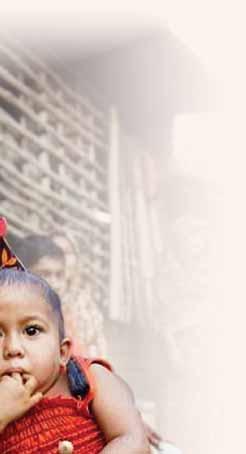
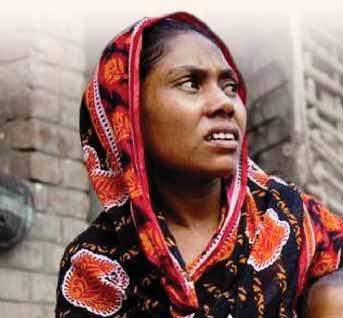
We have been patient, persistent We have and given so much for this cause… thanks for all that you have done towards the 10th anniversary of ensuring that Rukhsar was the last child from India to get polio.
and given
thanks fo
towards
ensuring t
child fr
IPPC chair Mike McGovern IPPCch
My most memorable achievement
as RI president was leading India
to become polio-free in 2011.
Rotarians went to remotest parts of
UP and Bihar; I remember crossing
unbridged rivers by boat, climbing
mountains, risking alligators and
tigers, and a miracle happened!
PRIP Kalyan Banerjee
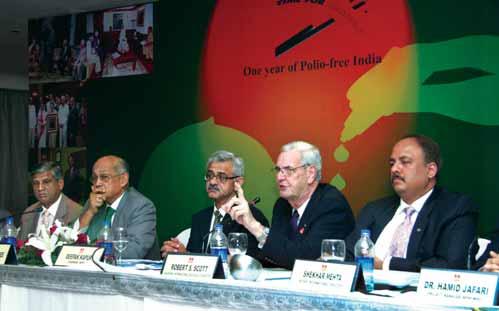
From R: RIPE Shekhar Mehta, past IPPC chair Robert Scott, INPPC chair Deepak Kapur, PRIP Kalyan Banerjee and PRID late Y P Das. (file photo)
for 10 years and compared the figures with Pakistan. In 2009, India had reported about 700 polio cases, but in 2010 there were only 40 and in Jan 2011, Rukhsar Khatoon, from Howrah in West Bengal, was the very last case in India. “In 2017, the scenario in Pakistan is similar to what happened in India in 2004–05, when the polio cases came down substantially, before spiking up again.”
The same thing had happened in Pakistan in 2019. “But under TRF Trustee Aziz Memon’s leadership, Pakistan continues to fight, and follow the path we saw in India. While during the whole year there were 80 cases in that country, in the last six months the number had declined to 24 cases, and in the last three months, the cases fell from 4 to 2 to 0 and thus far, no cases have been reported in 2021. This
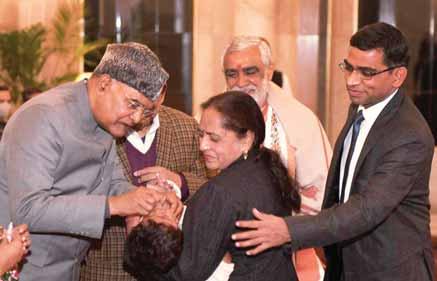
President of India Ram Nath Kovind giving polio drops to a child at the Rashtrapati Bhavan, Delhi. is really a good sign that Pakistan is working very hard to eradicate polio.”
Coming to Afghanistan, the IPPC chair said “our challenge is the areas that are controlled by the anti-government elements. For two years those areas have not been open for house-to-house vaccination.” Both WHO and UNICEF have been talking to Taliban regarding this and “we hope for some progress soon. We do have some good news but it’s not official yet. The fact remains that as long as those areas remain inaccessible, we are not going to be able to get rid of polio. Covid did pose challenge but also gave opportunities and our polio network, already in place, helped with surveillance, labs, etc for Covid-19.”
But once other organisations picked up responsibility for Covid, house-to-house polio vaccination in Pakistan and Afghanistan was resumed. Attention was also given to vaccine derived cases in the African region and elsewhere. “The almost
Impact of Rotary’s End Polio work
Through a series of charts and quick facts, IPPC chair Mike McGovern put into simple numbers the impact of the work done by Rotarians on polio eradication across the world.
19 million people are now walking on earth, who would have been otherwise paralysed due to the polio virus An estimated 650,000 cases are being avoided every year Since 1988, three billion children have been given oral polio drops In 2019, 430 million children were given polio vaccine in over 40 countries using 1.2 billion oral polio vaccine doses
The world has seen four years without a single case of wild poliovirus outside of Afghanistan and
Pakistan
Rotary has helped with other vaccine preventable diseases through the Polio-
Plus programme and assisted the world in responding to both
Ebola and Covid-19. 1,000 vaccine-derived cases do cause concern because they can also cause similar paralysis as the wild poliovirus cases.” One response was trying out the new vaccine called the Novel Oral Polio Vaccine 2 (nOPV2), “which is genetically more stable. Clinical trials have shown great results and we hope it will be successful,” McGovern said.
Underlining the importance of getting “this job done along with our partners, and do advocacy with the governments of the world”, he shared a screenshot of President of India Ram Nath Kovind giving polio drops to a child at the Rashtrapati Bhavan last month, and said just before the pandemic began, RI President Holger Knaack and TRF trustee chair K R Ravindran, along with TRF trustee Aziz Memon, had called upon the Pakistan Prime Minister Imran Khan and discussed the progress made in polio eradication work in Pakistan.
Advocacy with governments helps a lot, and thanks to Rotary’s advocacy, the governments of UK, US, Japan, Monaco, Canada and Australia have contributed a significant amount for this programme.
Urging Rotarians to stop the vaccine derived cases and encourage “the shot in the arm, as I call it”, McGovern said Rotarians would also have to keep convincing parents to vaccinate their children. “We have the obligation to get this done for the children of the world. We have been patient, persistent and given so much for this cause… thanks for all that you have done towards the 10th anniversary of ensuring that Rukhsar was the last child from India to get polio.”
Addressing the meet, PRIP Kalyan Banerjee said a decade of India being polio-free really called for a celebration. “I have always admired RC Madras for being engaged in controlling and eradicating diseases like measles and polio in the 1960s and 1970s when Kris Chitale was the main person leading the efforts.” He was on the IPPC with both Bob Scott and McGovern and “we all were happy to get the opportunity to do whatever we could to get our job done.”
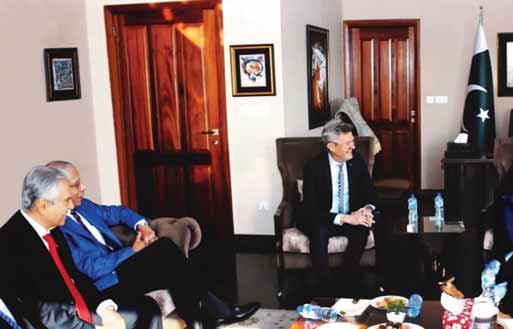
By ending polio in India, the annual
gains to the national economy, by
the most conservative estimate, is
$400 million. Nobody recognises
Rotary as a wealth creator but it has
done just that!
Virologist Jacob John
Referring to PDG and Nigeria PolioPlus Committee chair Tunji Funsho, who made it to the Time 2020 list of the world’s 100 most influential people, Banerjee said: “He is one of the heroes of immunising Nigeria and helping to make it polio-free. I have known him from the early 2000, when I was in his district as an RI president’s representative for the district conference.”
He recalled that during his tenure as TRF trustee, “when Nigeria needed a new national PolioPlus chair, I got in touch with PRIPs Raja Saboo and Jonathan Majiyagbe and talked about Tunji’s many abilities and then persuaded TRF chair Wilf Wilkinson to have him as the Nigeria chair. And he has been a gamechanger, handling admirably well an extremely difficult situation in a difficult country with several problems ranging from the Boko Haram problem to the Ebola disease. But he got the job done.”
Banerjee said that “perhaps the most memorable achievement during my year as RI president in 2011–12 was leading India to become poliofree that year. With our enthusiastic and young Rotarians joining hands with the government and going to the remotest parts of UP and Bihar, which were the most difficult states, we got the job done. I remember crossing unbridged rivers by boat, climbing mountains and risking both alligators and tigers… yes, tigers, really…and a miracle that none had expected possible, happened!”
Apart from the tremendous work put in by the India National PolioPlus Committee chair PDG Deepak Kapur, “we had the guidance of Dr Jacob John, an amazing man, who all the time advised us on how to get on with the job.” The Indian government was so happy, that not only did it acknowledge Rotary’s help and role “but the health minister of India personally came to Evanston to thank us. It is wonderful to relive those terrific moments in the presence of people who led us in that effort,” Banerjee added.
Bob Scott recalled how he and his wife had first visited RC Madras in Jan 1988. During a later visit to India, he had visited Howrah and “met Rukhsar as a toddler, who was screaming her head off as she
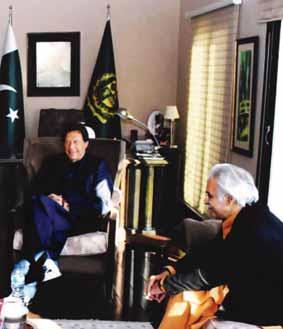
The first tranche of $1million from Gates Foundation
Introducing past TRF Trustee chair and past IPPC chair Bob Scott, past president of RC Madras N K Gopinath recalled how many years ago, while Scott was at a polio fundraising dinner in Japan, along with the then RI President Wilf Wilkinson, present IPPC chair Mike McGovern, and representatives from the UNICEF, WHO and trustees of the Bill and Melinda Gates Foundation, “Bob received a very important call from the Gates Foundation confirming that the first tranche of $100 million had been electronically transferred into the TRF account. This was announced by Bob who raised a toast.”
That was the beginning of Rotary’s relationship with the Gates Foundation and as McGovern announced at the meeting, only the earlier week its total contribution toward the Polio Fund has crossed $1 billion!
Left: Rotary leaders called on Pakistan Prime Minister in Feb, 2020. From L: Pakistan National PolioPlus chair Aziz Memon, TRF trustee chair K R Ravindran, RI President Holger Knaack, Pakistan Prime Minister Imran Khan and Minister of State for Health Zafar Mirza.
How polio funds are spent
Stressing the importance of being “transparent” about how Rotary spends the money and allocates region-wise the funds raised by Rotarians, IPPC chair Mike McGovern said recently the TRF trustees had approved the allocation of $100 million for the End Polio programme and an additional allocation of $50 million will be taken up in July 2021. About 45 per cent of the funds are being spent in Africa, Pakistan and Afghanistan, which are very important and critical regions, and 25 per cent of the budget goes for the vaccines. By the end of June 2021, $150 million would have been spent.
“But what about the money spent since we began in 1985 or 36 years ago? For Pakistan we spent $291 million (13 per cent); on Nigeria $282 million (12 per cent); for WHO-AFRO $230 million (10 per cent), Afghanistan $207 million (9 per cent) and for India $181 million (8 per cent).
Of the $3 billion spent on polio eradication since 1985, Rotarians had raised $2 billion and recently the contribution of the Gates Foundation had crossed $1billion. didn’t like being lifted by this tall white man!”
He told past president S N Srikanth, “when you first approached me, when I was the IPPC chair, to take the End Polio flame around the world, being a cautious Scott, I was a bit hesitant, but you were persistent and convinced me. That flame has been around the world, including my club in Canada where we had a special dinner and raised some funds.”
Eminent virologist Dr Jacob John said it was nothing short of miraculous that by ending polio in India “the annual gains to the national economy, by the most conservative estimate, is $400 million. Nobody recognises Rotary as a wealth creator but it has done just that!”
Dr Funsho thanked both Saboo and Banerjee “who have been friends of Africa well before I became the chair of
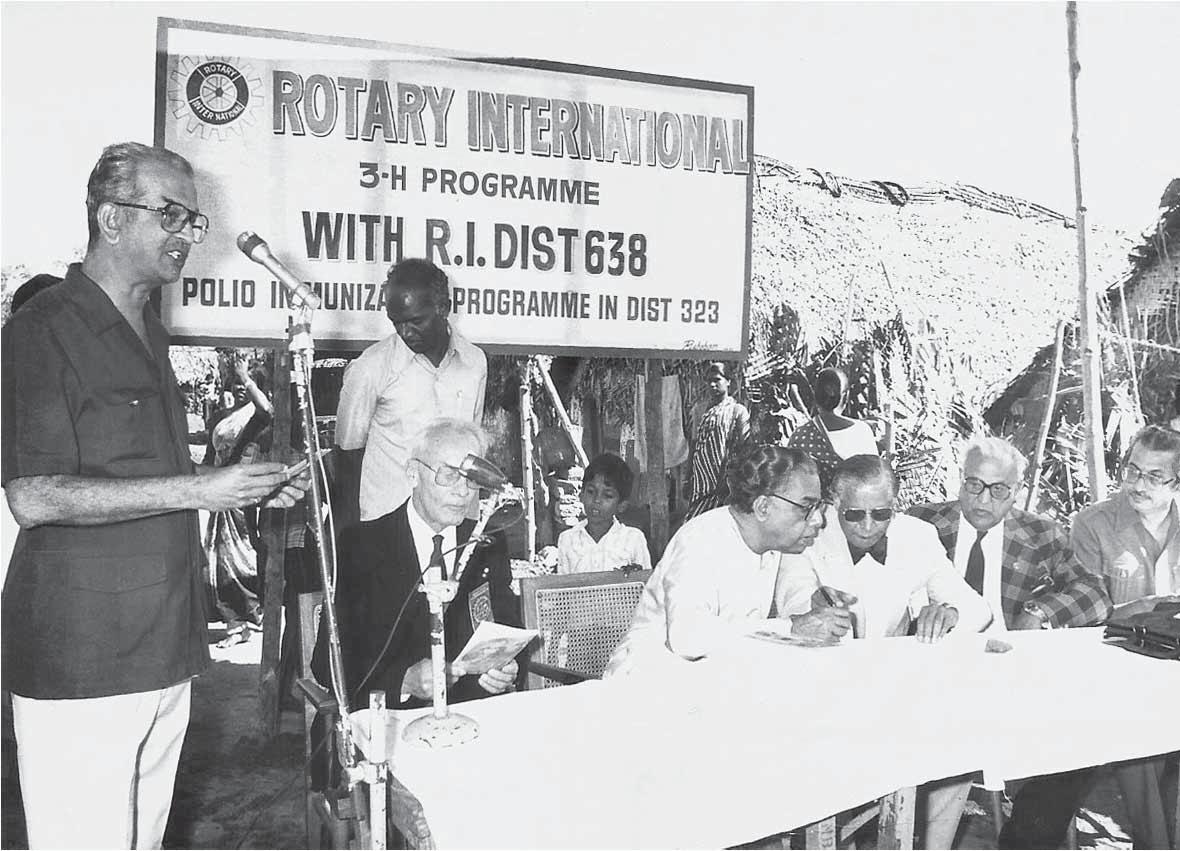
Kris Chitale, member of RC Madras, addressing a Rotary meet; the then Tamil Nadu Health Minister Dr H V Hande is seated second from left.
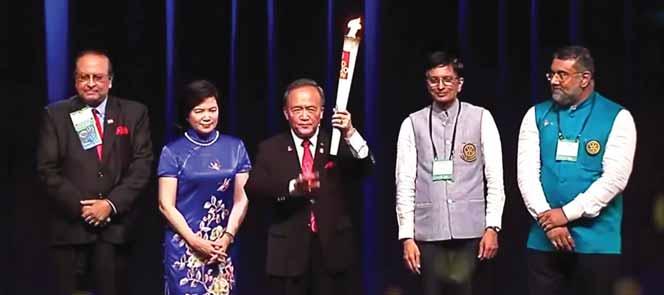
RI President Gary Huang holds aloft the Polio Flame at the Sao Paulo Convention in 2015. From L: PRID P T Prabhakar, RC Madras president S N Srikanth and secretary N K Gopinath.
Rukhsar Khatoon, now 11, at her home in Shahpara village near Howrah.
the Nigeria PolioPlus committee” for all their help in ridding Africa of the wild poliovirus. India Rotarians, he added, “have played a huge role in mentoring us to ensure we meet the goal of making Nigeria polio-free in 2016. Both Saboo and Banerjee were at our beck and call, and came with teams of Indian surgeons for polio corrective surgery.”
RC Madras president Kapil Chitale proudly announced that their club has been chosen as the nodal club to partner with and assist the health department of Tamil Nadu in Covid vaccination.
Past president Srikanth moderated the Q&A session with McGovern, and played a video of the End Polio flame programme started by the club during his presidentship, and thanked past president Gopinath for his immense help and support in this venture. It was taken to the Sao Paolo convention of RI and has already visited 35 countries and helped collect over $10 million for ending polio. Recalling the efforts of the pioneers from RC Madras who had led the red measles and polio eradication drive, braving cold chain challenges, he added that thanks to Rotarians from the state, Tamil Nadu was the first state in India to become polio-free.
The cynosure of all eyes at the zoom event was Rukhsar. Club president Chitale announced that to mark the 10th anniversary of a polio-free India, the club is gifting her a tablet, which will be sent to her. RIDE A S Venkatesh, TRF trustees Aziz Memon and Geeta Manek and PRID P T Prabhakar attended the meeting.
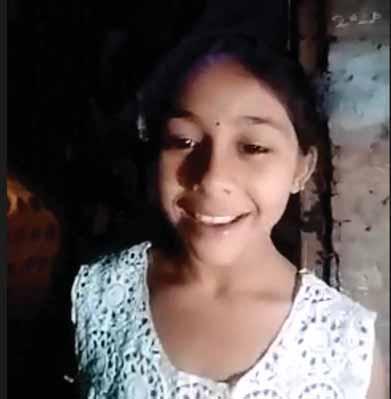
RC Madras chosen nodal club for Covid vaccination
Rasheeda Bhagat
Rotary Club of Madras, RID 3232, has been chosen as the nodal club by the Tamil Nadu government for assisting it in the task of Covid vaccination in the state.
In a letter to the club president Kapil Chitale, TN health secretary J Radhakrishnan invited the club to assist the government in the procurement and delivery of Covid-19 vaccine doses. The club has also been requested to help out with the cold chain requirement for proper storage of the vaccine, as well as implementation of the actual vaccination, and the logistics involved in this massive public health programme.
It may be recalled that RC Madras played a vital role in the 1980s and ‘90s with a bunch of passionate Rotarians led by its late president and eminent Chennai architect S L Chitale (known in the club as Kris Chitale) to literally move heaven and earth in those early years to get the oral polio drops airlifted from overseas and store them at the right temperature to safeguard their efficacy.
It was thanks to the pioneering work done by these Rotarians and others from other Rotary clubs of Tamil Nadu, and a closely coordinated partnership with the TN health department headed by the then health minister Dr H V Hande, as well as constant advice by professor of virology at CMC, Vellore, Dr Jacob John, that Tamil Nadu became the first polio-free state in India, as stated by one of its members at a recent event organised to celebrate the 10th anniversary of India being polio-free.
Interestingly, Tamil Nadu is also one of the states where there has been resistance from frontline health workers to come forward and get vaccinated against Covid19. In the early 2000s, Rotary’s advocacy efforts, led by PRID Ashok Mahajan in some of the most backward regions of India, including Maharashtra and UP, where there were a lot of misconceptions about the oral vaccine drops, had resulted in parents coming on board. Rotary had then got the local ulemas and other religious personalities involved in advocacy. Recalls Mahajan: “I had clearly asked all the religious leaders ‘Are you with us in protecting our children against the crippling disease of polio?’ and they had unanimously said ‘yes’.”
The TN government as well as other state governments will also be looking up to Rotary to raise CSR funds for Covid vaccination and “we will be working very hard to do that,” Mahajan added.
RCM president Chitale added that as “the nodal club in Tamil Nadu for Covid vaccination, we will soon reach out to other clubs in RID 3232 and the DGs of other districts in the state to formulate a plan of action. This partnership was made possible thanks to the efforts of our past president Vivek Harinarain.”
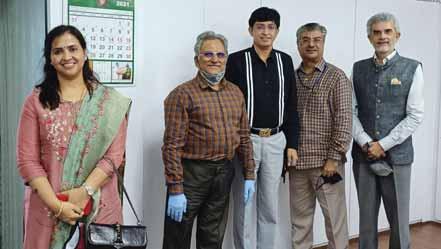
From L: Rtn Dr Anuradha Ganesan; Rtn Dr Gauthamadas Udipi; TN health secretary Dr J Radhakrishnan; Rtn Vivek Harinarain and RC Madras president Kapil Chitale.
Challenge and opportunity
One year ago this month, the WHO declared Covid-19 a pandemic. As I write these words, the coronavirus continues to wreak havoc: taking lives, choking economies, and changing our societies in myriad ways. It has disproportionately hurt the poor and worsened inequalities.
Even as some countries have done better than others in controlling this deadly disease, the rapid development of vaccines is bringing us closer to the end of our strange new reality of social isolation.
This dark chapter in our history is also an opportunity for Rotary, because it reminds us of the impact we can have through The Rotary Foundation if we commit to helping others and live up to our highest ideals. It reminds us of the truly international spirit that we must embody to recover from this moment.
During the Covid-19 pandemic, we have witnessed compassion and sacrifice, friendship and resilient good humour. I am reminded of that famous insight popularised by John F Kennedy: “When written in Chinese, the word crisis is composed of two characters: One represents danger, and one represents opportunity.” Working together, we have done so much to adapt to the Covid-19 pandemic, to care for our communities, and to seize the opportunity to be a part of perhaps the most complex task ever undertaken in history — vaccinating seven billion people.
This does not mean we will deviate in any way from our avowed commitment to eradicating polio, which remains our highest priority and will continue to be our only corporate programme.
On the contrary, while continuing polio vaccinations and surveillance, we can apply all our experience in fighting polio to counter Covid-19. We all have a part to play in combating the growing force of vaccine resistance and misinformation. Our advocacy in our communities will be critical — we need to spread the message about the power of vaccines to save lives. We need to work closely with governments and support them in the vaccination drive. We need to add to the more than 3,000 projects already registered on Rotary Showcase to raise awareness, deliver critical personal protective equipment, and support frontline health workers.
As Aristotle said, human beings are social animals, and while Covid-19 has cruelly deprived us of our natural or habitual environment, it does not prevent us from finding connections and helping others in new ways. As you will see in the coming months, Rotary members are already finding the means to channel their humanitarian spirit through the Foundation, which is constantly adapting to address the world’s challenges. Every Rotarian has a role in this effort, and you will find that however you choose to help others and make lasting change, you are not alone.
K R Ravindran Foundation Trustee Chair
Goodies for Rukhsar
Team Rotary News
Rotary Club of Howrah, RID 3291, led by president Dr Pamela Ghosh presented a bicycle to Rukhsar Khatoon, the last child to have contracted polio in 2011 after which India and the entire S E Asia was declared polio-free by the WHO in March, 2014.
“We visited Shahpara, Rukhsar’s home village, 50 km from Kolkata, to spread awareness among the people to continue vaccinating their children against polio. She was 18 months old when she was affected by polio and cured after extensive physiotherapy. Back then the village was known to be unhygienic and vaccine-resistant,” recalled club secretary Joyati Bhattacharya.
The gift would help the child, now 11, to commute to school and back. She will soon receive a tablet from RC Madras to help with her studies.
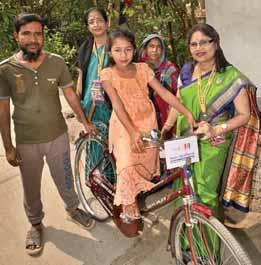
Rukhsar Khatoon with RC Howrah president Pamela Ghosh and secretary Joyati Bhattacharya (R). Her parents are also in the picture.
Miracles do happen, that’s how India won the battle against polio
Rajendra Saboo
At a time when the world battles Covid-19, the story of how the polio virus was eradicated brings hope that mankind will triumph over adversities at all costs. On January 13 this year, India celebrated ten years without polio, the last patient to be diagnosed with the disease on this date in 2011 being two-year-old Rukhsar of Howrah.
For her we were too late but after that India was well on its way to achieving the status of a polio-free country. In 2012, the government of India and Rotary organised a polio summit at Vigyan Bhawan, New Delhi and just before the inauguration, Bruce Aylward from the World Health Organisation, Geneva, came to the dais and announced that India had been removed from the active list of polio endemic countries.
On March 26, 2014, India was certified by WHO and declared poliofree. That is the reason why January 13 is a memorable day in the public health history calendar. It was estimated that in 1988, 450 children in India were affected by polio every day. Only 1 out of 200 children who contracted the poliovirus got paralysed. The other 199 went undetected. Experts opined that India would be the last country in the world to eradicate polio (even as late as in 2002), because of its huge cohort of 170 million children below the age of five, the population density, unsanitary conditions, impure drinking water and enteric diseases, etc.
India’s victory over polio was achieved after a long drawn struggle.
From 3,50,000 children affected by polio in 122 countries of the world in the ’80s, through the global partnership of Rotary with WHO, UNICEF, Centers for Diseases Control and Prevention (CDC), Bill and Melinda Gates Foundation, and numerous partners, except for Afghanistan and Pakistan, the world as of now is free of polio. Rotary has contributed more than $1.7 billion and countless volunteer hours to immunise more than 2.5 billion children in countries worldwide.
Rotary’s advocacy efforts have also played a significant role in decisions by donor governments to add more than $7.2 billion to the effort.
It all began in 1977 when Sir Clem Renouf who was nominated as president of Rotary International came across an article in the Reader’s Digest about eradication of smallpox. That prompted him to look for another health challenge facing the world. After discussions with numerous health agencies, polio was identified as the biggest threat to the children of the world.
In 1979, Rotary initiated the polio immunisation campaign with the Philippines by acquiring six million doses of OPV (oral polio vaccine) developed by Dr Albert
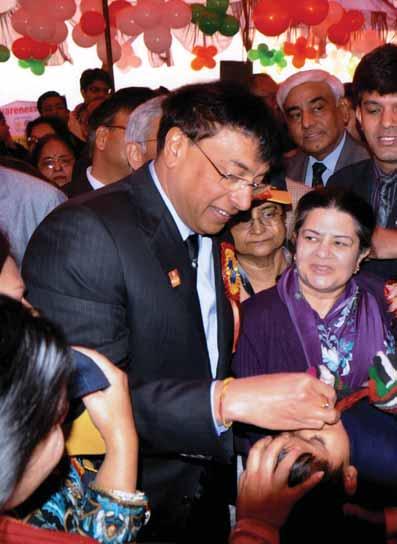
Sabin and immunised the total population of young children in the country. Encouraged, Rotary took up this programme to free the world of this dreaded disease.
Despite World Health Assembly in 1988 persuading all nations to join in this fight, no substantive headway was made in India. Late Sudarshan Agarwal, then secretary general of Rajya Sabha and also a senior leader of Rotary, prompted some members of Parliament to ask questions in both houses about why India was lagging in polio eradication while many countries had gone far ahead.
Due credit has to go to Dr Harsh Vardhan, currently the Union minister of health and family welfare, for his contribution in changing the direction of the polio movement. It was one single factor that helped India finally reach its eradication goal. Before 1994 the bureaucracy at the government of India level did not believe in the strategy of National Immunisation Day (NID), observed so successfully by other countries including large population areas such as China and Brazil.
Dr Harsh Vardhan took the immunisation initiative in Delhi on October 2, 1994, naming it the ‘pulse polio programme’. With D-Day approaching, however, the plague endemic popped up in Surat with an all-too-real threat over Delhi. However, Dr Harsh Vardhan was determined to go forth. All Rotarians and other stakeholders assured active participation. Wearing masks the health workers of the Delhi government with the support of Rotarians, reached out to 12 lakh children in a single day to protect them from polio and also the plague.
The then newly appointed Union health minister A R Antulay grabbed the opportunity and convened a meeting of all state health ministers where I could make a presentation to them. The result was the adoption of a plan for observing NID. This was the changemaker in the policy. It was also decided that to ensure the success of the programme the Indian government had to be in the driving seat, which was also done. Rotary took up the responsibility of supplying the entire polio vaccine stock and also funding the activities of WHO and UNICEF in the country.
India has been very fortunate that irrespective of the party in power, the immunisation efforts continued year after year. Uttar Pradesh and Bihar, however, had problems with minority communities boycotting immunisation due to false rumours. The government encouraged Rotary to develop a connect with these communities. Through notable work such as conducting free polio corrective surgeries and befriending Ulemas this hurdle too was crossed.
In August 2020, Nigeria, and all of Africa as a result, were declared polio-free. The only countries with polio cases now are Pakistan and Afghanistan. All efforts are being focused on them and after three years of nil cases the entire world will then be polio-free, the second disease to be vanquished after smallpox.
Step by step, overcoming hurdles, never losing determination despite setbacks, the Indian government with Rotary and other partners moved forward. Indeed, the last decade has shown that persistence, perseverance and perspiration can move mountains.
Victor Hugo, wellknown poet and novelist, rightly said, “Perseverance, secret of all triumphs.”
Left: File photo of a polio vaccination drive in India. (From L) Industrialist Lakshmi Mittal, Aditya Birla group social initiatives chairperson Rajashree Birla and PRIP Rajendra Saboo. Also seen in the picture are Binota Banerjee and PDG Ramesh Chander. Rotary has contributed
more than $1.7 billion
and countless volunteer
hours to immunise
more than 2.5 billion
children in countries
worldwide.
The writer is a past RI president.




